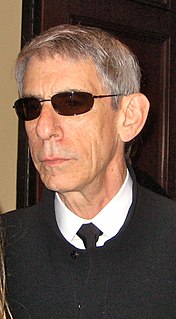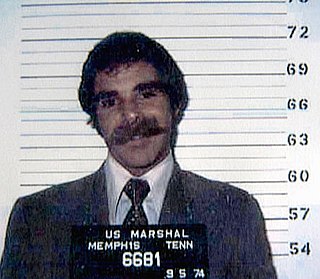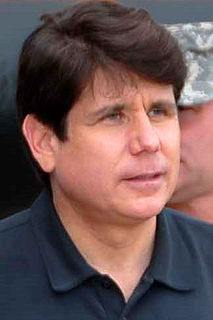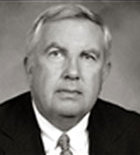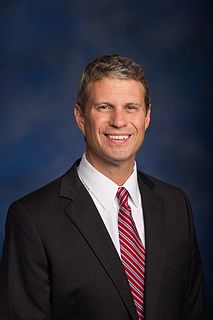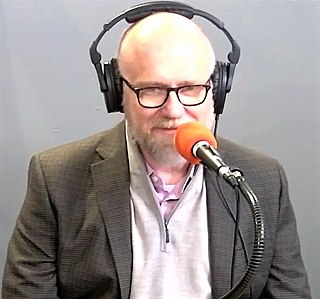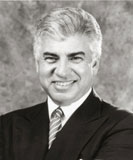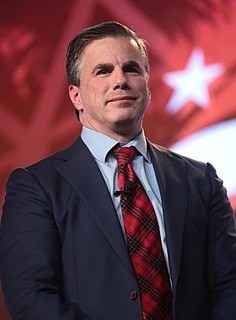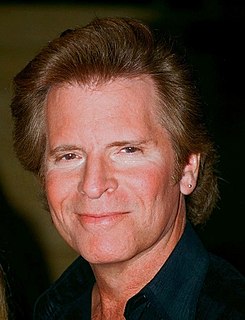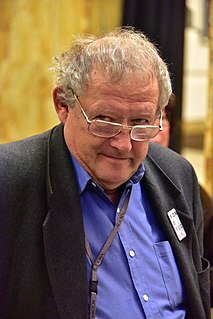Top 167 Watergate Quotes & Sayings - Page 3
Explore popular Watergate quotes.
Last updated on November 7, 2024.
I think the media has become incredibly corrupt. We used to have a profound tradition of investigative journalism in the United States. Some journalists were real heroes, such as Bob Woodward who helped uncover the Watergate scandal. But today he is leading the opposite charge, trying to bring down the careers of people and score easy victories. In other words, those who used to bust the status quo have now become the status quo.
In the post-Watergate atmosphere of 1975 and 1976, the just-plain-folks personalities of both Ford and Carter seemed the perfect antidote to Nixon's arrogant, isolated presidency. But as alert history-minded readers know, Ford and Carter were both rebuffed by voters in their efforts to hold on to the presidency.
The slow-rising central horror of "Watergate" is not that it might grind down to the reluctant impeachment of a vengeful thug of a president whose entire political career has been a monument to the same kind of cheap shots and treachery he finally got nailed for, but that we might somehow fail to learn something from it.
The court case against me was a dictate out of the White House. Richard Nixon instructed the Justice Department to prosecute pornography to the fullest extent. Now, at the same time, Watergate was going on, so I think he was trying to defer the press or take attention away from his own personal problems.
Why does The Smartest Woman in the World [Hillary Clinton], who could carve her own career, who was on the Watergate committee - and got thrown off of it, by the way, for wanting to deny Richard Nixon his constitutional rights.How does a woman who has become a fixture in northeastern liberal politics find herself in the backwoods of Arkansas?
There's another aspect about the Seventies. Blazing Saddles, as wonderful as it was, sort of hurt the Western. It made such fun of them, that you almost couldn't take them seriously from that point on. That's why only Westerns that had the stink of Watergate or Vietnam could be taken seriously. There were so few Westerns made since then, from the Eighties on, that the few directors who did were so pleased with themselves and so happy to have the opportunity that they got lost in visuals, they got lost in the vistas and the pretty scenery.
This is a world that's big enough for everyone. I like that message in that comes out of John Lasseter, and it comes out Pixar, it comes out of the Apple, Google, the Ben and Jerry's thing. These are American companies that send that message around that is good, that is healthy. And everyone goes, "That's the America I always believed in before Watergate."
I believe the liberal international order is under assault from Russia, and from other authoritarian regimes, and it is being questioned from within the West by nationalists, by nativists, and by people who doubt our - doubt the values of the West. We've gone through periods like this before; in the '70s, after Vietnam and Watergate, and certainly in the '30s, when people thought liberal democracy was dead, and the future belonged either to the fascists or the communists.
In hindsight, Watergate was a curse as well as a blessing for American journalism. The courageous reporting of the 'Post' and the 'New York Times' - coupled with the favourable Supreme Court rulings on publication of the Pentagon Papers - were landmarks for the interpretation of First Amendment rights and the freedom of the press.
Richard Nixon clearly broke the law in the cover up of Watergate and hush money payments. That was all criminal activity. With these guys, we're not talking about the kind of common crimes that Nixon committed. I can't tell you whether they are technically breaking the law, but basically, the American government has been hijacked by neoconservatives. They are taking an awful lot of national security operations into the White House.
Probably after Vietnam and Watergate, there was an increasing distrust of institutions, so that Jesus was still in, but the institutional church was no longer an attraction. So, I think that the dropping of the denominational label is to become more generic, less of a threat, less of a reminder of negative stereotypes if you've walked away from church.
This time, we're living in such a crazy moment in history. People still write and talk about Watergate, which was such a huge, looming backdrop when I was coming of age and when I was a kid growing up. I think we're living in one of those times right now where, in 20 years, people will be writing and talking about it.
No, you can take it from an expert in cover-ups-I've lived through Watergate-that nothing less than a resurrected Christ could have caused those men to maintain to their dying whispers that Jesus is alive and is Lord. Two thousand years later, nothing less than the power of the risen Christ could inspire Christians around the world to remain faithful-despite prison, torture, and death.
In the Obama administration's Washington, government officials are increasingly afraid to talk to the press. The administration's war on leaks and other efforts to control information are the most aggressive I've seen since the Nixon administration, when I was one of the editors involved in The Washington Post's investigation of Watergate.
Nixon clearly broke the law in the cover up of Watergate and hush money payments. That was all criminal activity. With these guys, we're not talking about the kind of common crimes that Nixon committed. I can't tell you whether they are technically breaking the law, but basically, the American government has been hijacked by neoconservatives. They are taking an awful lot of national security operations into the White House.
The Watergate is a hotel in Washington where Nixon operatives broke in to steal campaign information from the Democratic Party. Nixon's people subsequently described that act as a 'third-rate burglary.' In the same manner, Clinton has described the FBI investigation of her email escapades as 'a security review.'
I have a suggestion that I think would help fight serious crime. Signs. There are lots of signs for minor infractions: No Smoking, Stay Off the Grass, Keep Out, and they seem to work fairly well. I think we should also have signs for major crimes: Murder Strictly Prohibited, NO Raping People, Thank You for Not Kidnapping Anyone. It's certainly worth a try. I'm convinced Watergate would never have happened if there had just been a sign in the Oval Office that said, Malfeasance of Office Is Strictly Against the Law, or Thank You for Not Undermining the Constitution.
Almost no one under 60 remembers what fundraising was like before Watergate. Until the 1970s, campaign money was collected by "bagmen," familiar characters from the world of organized crime. As fans of Boardwalk Empire know, a bagman is a political fixer who walked around with stacks of $100 and $1,000 bills. At lower levels, he used brown paper bags. In presidential campaigns, the cash was more likely to be in briefcases. Classier that way.
Nixon had been to China. He had been to Russia doing arms negotiation. And so, he was on his way toward what happened in November, which was an electoral win with 49 states. And the sheer unnecessariness of the Watergate break-in is something that must have tormented him and his allies in all of the years that followed.
I'm just made differently. Man, I just love being an American, I love my country. But it happened to me during the Nixon time, especially pre-Watergate, that as I watched Nixon for the first time in my life I felt shame. I had to analyze myself. What is this emotion? I realized that my government was separate from my country. It was the first time I ever felt ashamed of the government, not the country.
As I'm sure anyone who's born after the '70s' access point is - is '70s films and '70s culture and there is a kind of a paranoiac atmosphere in that time in America. Yes, it's the golden age of journalism, Watergate, and all the rest of these people making these great breakthroughs - but it's also the moment that "if it bleeds, it leads" becomes mainstream and sensationalizing the news becomes more and more the given. Checking how many numbers you're getting, whatever you can do to get more numbers.
The Democrats loved Jimmy Carter, even though - and, by the way, take a look at some economic circumstances. In 1980, the economy of this country was in the tank after four years of Jimmy Carter. I mean, it was desperately bad. Unemployment was sky-high. Carter had seen us through a couple of near-depression recessions, all of this coming out of Watergate, which happened in 1972.
Today we reject the notion of equality between a regime that belongs to the democratic world - even if it is conservative and disagreeable - and a totalitarian dictatorship, whether its colors are black, red, or green. This is why we will never again say that Chamberlain is no better than Hitler, Roosevelt no better than Stalin, and Nixon no better than Mao Zedong, even if we do condemn Roosevelt for Yalta, Chamberlain for Munich, and Nixon for Watergate.

